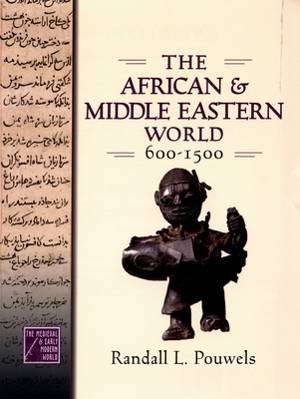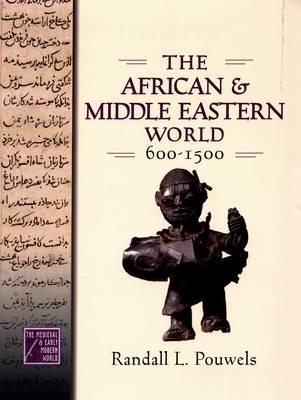
- Retrait gratuit dans votre magasin Club
- 7.000.000 titres dans notre catalogue
- Payer en toute sécurité
- Toujours un magasin près de chez vous
- Retrait gratuit dans votre magasin Club
- 7.000.0000 titres dans notre catalogue
- Payer en toute sécurité
- Toujours un magasin près de chez vous
Description
The history of the African and Middle Eastern world is, to a large extent, the story of a religion-Islam-and how it claimed millions of followers across empires and kingdoms. First proclaimed by the Prophet Muhammad in the seventh century, Islam quickly spread, through trade and conquest, from the Arabian Peninsula to vast sections of Asia and Africa and even to parts of Europe. The cast of characters in this story is fascinating: from the Prophet himself to Abu Bakr Muhammad ar-Razi, a Persian physician who compiled a multivolume medical encyclopedia; Mehmed II, an Ottomon sultan who conquered Constantinople and brought the Byzantine Empire to an end; Mansa Musa, a West African emperor who distributed gifts of gold all along the route to Mecca; and Ibn Battuta, a Moroccan Berber whose travels through the Islamic world in the 14th century covered 75,000 miles.
The pages of The African and Middle Eastern World tell not only about these figures and many others but also about Islamic principles and laws, the religion's different branches (including the Sunnis and Shiites), and the widely varied geography and cultural practices of this world. Also covered are people like the Shona of Southern Africa, who remained outside of Islam's long reach. Numerous primary sources-including excerpts from an eighth-century biography of Muhammad, "The Tale of King Sinbad and the Falcon" from The Thousand and One Nights, and a story about leadership from the West African oral tradition-further illuminate this history.
Spécifications
Parties prenantes
- Auteur(s) :
- Editeur:
Contenu
- Nombre de pages :
- 178
- Langue:
- Anglais
- Collection :
- Tome:
- n° 2
Caractéristiques
- EAN:
- 9780195176735
- Date de parution :
- 25-08-05
- Format:
- Livre relié
- Format numérique:
- Genaaid
- Dimensions :
- 196 mm x 240 mm
- Poids :
- 580 g

Les avis
Nous publions uniquement les avis qui respectent les conditions requises. Consultez nos conditions pour les avis.






